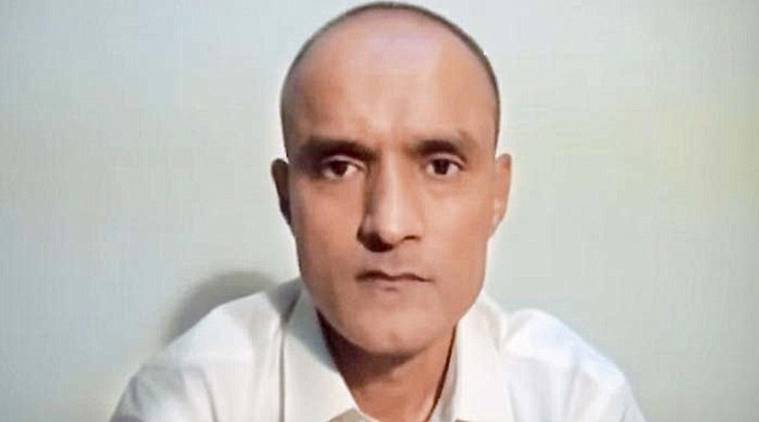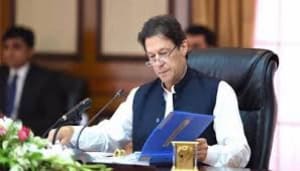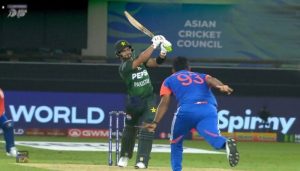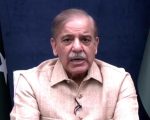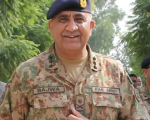THE HAGUE – The international Court of Justice (ICJ) stayed the execution of RAW agent Kulbhushan Jadhav and ordered providing consular access to him here on Thursday.
“Pakistan shall take necessary measures to ensure that Jadhav is not executed until the final decision in these proceedings and shall inform the court all the measures taken in implementation of the court’s order,” the order stated.
“India has the right to seek consular access for Jadhav,” it added.
https://en.dailypakistan.com.pk/headline/indian-spy-pakistan-doesnt-accept-icj-jurisdiction-in-kalbushan-jhadavs-case/
The order was pronounced by Judge Ronny Abraham, President of the Court who noted that the case of Jadhav came under its jurisdiction over Vienna Convention thus refuting Pakistan’s request, challenging its domain.
The international court accepted the application of India seeking rights for Jadhav under the article 36 paragraph 1 of Vienna convention. Moreover, the court also accepted the request regarding provisional measures to Jadhav.
The order stated that the 2008 Indo-Pak agreement doesn’t prevent the ICJ from exercising jurisdiction at this stage.
‘Any bilateral agreements do not supersede the Vienna conventions which both countries are a signatory to’ the order stated.
“India could not satisfy ICJ over the merit of the case. Access to Jadhav is not possible under Vienna Convention. Vienna Convention does not apply to persons suspected of espionage.” The judge said.
“Court considers it a failure on the part of Pakistan to present counsellors to Jhadav,” the president added. Abraham stated that a link existed between the rights invoked by India and the provisional measures being sought by the state.
https://en.dailypakistan.com.pk/pakistan/iran-seeks-access-to-kulbhushan-jadhav-for-interrogation/
The 11 judge bench also confirmed that there were 40 days available to Jadhav to challenge the decision regarding his death sentence but it was not sure whether he took any decision in this regard or not.
The ICJ judge observed that rights invoked by India under the Vienna Convention were plausible adding that both India and Pakistan agreed that Kulbhushan Jadhav was an Indian citizen.
I’t further notes that the acts alleged by India, i.e., the alleged failure by Pakistan to provide the requisite consular notifications with regard to the arrest and detention of Mr. Jadhav, as well as the alleged failure to allow communication and provide access to him, appear to be capable of falling within the scope of the Convention. In the view of the Court, this is sufficient to establish that it has prima facie jurisdiction under Article I of the Optional Protocol’ read Abraham in a sombre courtroom.
Regarding the risks to the Jadhav who was facing death sentence, the ICJ ruled: The mere fact that Mr. Jadhav is under a death sentence and might, therefore, be executed is sufficient to demonstrate the existence of a risk of irreparable prejudice to the rights claimed by India.
“The Court further observes that Pakistan has indicated that any execution of Mr. Jadhav would probably not take place before the month of August 2017. This means that there is a risk that an execution could take place at any moment thereafter before the Court has given its final decision in the case.
‘The Court also notes that Pakistan has given no assurance that Mr. Jadhav will not be executed before the Court has rendered its final decision. In those circumstances, the Court is satisfied that there is urgency in the present case’ announced Abraham.
In view of all these observations, the UN’s legal arm directed to stay the execution of Kadhav and requested consular access to him.
The ICJ also said the case is now being heard in the international court, and both sides can present their arguments to the court.
After the decision Indian minister for External Affairs, Sushma Swaraj took to Twitter and vowed to save Kulbhushan under the leadership of premier Narendra Modi.
https://twitter.com/SushmaSwaraj/status/865158107458134016
The UN’s top court had reserved the order on Monday regarding the landmark case that would decide the nature of relations between the nuclear-armed neighbours.
India had moved court hurriedly in a bid to rescue Jadhav who was awarded death sentence by a Field General Court Martial (FGCM) last month. The Indian media jumped the gun and claimed that the court stayed the execution however the joy fell on stony ground as soon as ICJ announced receiving an application from the Indian side.
https://en.dailypakistan.com.pk/pakistan/icj-rubbishes-indian-medias-claims-regarding-staying-jadhavs-death-sentence-will-hear-pakistan-first/
After 18 years, India and Pakistan confronted each other in the world court. India has stayed away from the international court and it is only the second time after 1971 that New Delhi has sought the intervention of the judicial arm of the United Nations against Pakistan.
https://en.dailypakistan.com.pk/pakistan/icj-to-take-up-indias-case-against-death-sentence-to-kulbushan-jadhav-today/
On the other hand, Pakistan challenged the jurisdiction of the ICJ to hear the Indian application regarding the conviction of spy Kulbhushan Jadhav by Pakistan.
Director General (South Asia and Saarc) Dr Muhammad Faisal told the court that under Vienna Convention the ICJ could not take up this case. Ambassador Moazzam Ahmad Khan, Dr Muhammad Faisal and Syed Faraz Hussain were present at the Peace Palace as members of Pakistan’s legal team.
Dr Faisal further said the Indian spy was sentenced to death after fulfilling all necessary legal procedures and that he [Jadhav] was also provided the services of a counsel to defend allegations against him.
Supreme Court lawyers Khawar Qureshi, Asad Raheem Khan and Joseph Decky were also present.
Presenting its arguments before the court, Pakistan maintained that the ICJ did not have jurisdiction to hear the Indian application, Radio Pakistan reported.
Here is the full video of arguments presented by Pakistan at The Hague:
He further said the Indian spy was sentenced to death after fulfilling all necessary legal procedures and that he was also given legal counsel to defend the allegations against him.
Faisal also showed the court a picture of a passport which he said was found in Jadhav’s possession bearing a completely different “and Muslim” name.
“India has been unable, or perhaps unwilling, to provide an explanation for this passport which is the most obvious indication of covert and illegal activity,” added Faisal.
Lawyer Khawar Qureshi, appearing for Pakistan, earlier argued that: “The ICJ is not a criminal court and cannot decide such type of cases relating to national security.”
The counsel for Pakistan also said that the provisions of the Vienna Convention do not apply to a “spy involved in terror activities”.
https://en.dailypakistan.com.pk/headline/pakistan-mulling-response-to-icj-move-regarding-kulbhushans-death-sentence-says-sartaj-aziz/
Qureshi said that Jadhav “is a terrorist” and “India invoked the jurisdiction of this court improperly.”
“This court exists to ensure that states engage in peaceful resolution of disputes. This court does not exist for time-wasting and political grandstanding,” he maintained.
“India’s allegation regarding the kidnapping of its spy is not true and he [Jadhav] was arrested by Pakistani forces from Balochistan,” he maintained.
India had appealed to the UN’s top court to order Pakistan to suspend its planned execution of Jadhav, saying his rights had been violated by Islamabad.
Harish Salve, leading the Indian legal team, had focused his arguments on Pakistan’s denial of consular access to Jadhav as he presented India’s case before the judicial body.
“The situation in which we find ourselves is grave and it is urgent,” Salve said. “India has made innumerable requests since March 2016 for consular access.”
But Pakistani representatives told the court Jadhav “has confessed to having been sent by India to wage terror on the innocent civilians and infrastructure of Pakistan”.
Deepak Mittal, joint secretary of India’s Ministry of External Affairs, told judges at the ICJ that Jadhav’s death sentence was handed down following a “farcical” trial.
Jadhav was “an innocent Indian national, who, incarcerated in Pakistan for more than a year on concocted charges, deprived of his rights and protection accorded under the Vienna Convention, has been held incommunicado … and faces imminent execution,” Mittal told the tribunal.
Jadhav was arrested on March 3, 2016, through a counter-intelligence operation in Balochistan’s Mashkel area for his involvement in espionage and sabotage activities against Pakistan. He was sentenced to death by the FGCM in April this year.
